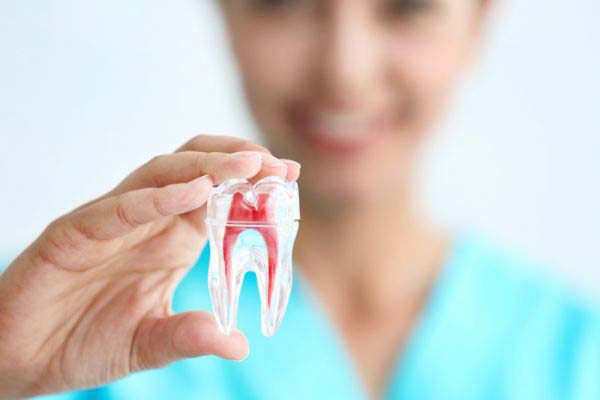Gum Disease: What Causes Inflamed Gums?

While gum disease is the most prevalent cause of gum inflammation, incorrect brushing and flossing, smoking, chemotherapy, hormonal changes, and irritation caused by oral devices may all contribute. Continue reading to learn more about the causes of gum inflammation and how to deal with it.
Does gum disease cause gum inflammation?
Inflamed gums are a common problem. Two forms of gum disease affect individuals, depending on the degree of gum inflammation:
Gingivitis
Gingivitis is a mild type of gum disease that affects millions of people every year. The most common sign of this condition is inflamed gums that bleed when brushing or flossing. While gingivitis is not a major threat to oral health, treatment is necessary to prevent it from worsening.
Periodontitis
If gingivitis is not treated promptly, it may develop into periodontitis, a more dangerous form of gum disease. Inflamed gums are more painful at this stage, and the teeth may begin to loosen. The reason is that periodontitis has begun to wreak havoc on the gum tissue and bone structure that supports the tooth and keeps it stable. It is essential to treat inflamed gums and periodontitis to maintain proper dental health in the long run.
It is easier to treat inflamed gums and halt the progression of early gum disease. The following are steps patients can take to treat inflamed gums and restore their oral health:
Good brushing is important
Brush gently to prevent harming the tissue that surrounds the teeth, which may cause gum inflammation. Additionally, dental professionals advocate brushing with a soft, nylon-bristle brush to avoid gum damage. Finally, patients should consider getting toothpaste for sensitive teeth.
Floss properly
Flossing eliminates food particles that get trapped between your teeth, which may lead to plaque and tartar build-up, resulting in inflamed gums and gum disease. However, one must floss gently to prevent inflamed gums. Instead of yanking the floss between the teeth and risking gum damage, gently slip it between them. Some bleeding might occur during the process, but this should not be a deterrent.
Rinse the mouth
Rinsing the mouth aids the removal of food particles and debris that contribute to plaque formation and may result in gum disease. Therefore, when it is not feasible to brush after a meal, rinse the mouth, preferably with a mouthwash developed specifically for the gums. Antimicrobial mouthwashes aid in neutralizing plaque bacteria and stopping some of the early symptoms of gum disease.
Improve nutritional choices
Consuming a well-balanced diet may help maintain optimal gum health. Consume enough vitamin C and calcium to help prevent inflamed gums.
De-stress
Stress may affect hormone levels, notably the stress hormone cortisol. Cortisol may cause inflammation and, in certain cases, swollen gums. Make every effort to de-stress for your overall health as well as your oral health.
The bottom line
If you have inflamed gums, make an appointment with a dentist to discuss treatment options. The dental professional can assist you in determining the source of the inflammation and guide you toward improved gum health. The good news is that you do not have to live with inflamed gums or gum disease since several treatment options are available.
Request an appointment here: https://franklincosmeticdentist.com or call Cedar Lane Family Dentistry at (317) 736-7476 for an appointment in our Franklin office.
Check out what others are saying about our services on Yelp: Gum Disease in Franklin, IN.
Related Posts
Gum disease attacks the healthy gum and bone structure in the mouth and in extreme cases can cause the teeth to fall out. Bleeding gums are an early warning sign of the infection, but unfortunately, many smokers, vapers, and tobacco chewers miss it. Because of this and other factors, smoking is a leading cause of…
Flossing can seem like a chore, but the link between flossing and bleeding gums is clear. Sometimes, when you floss, you might occasionally find it causes your gums to bleed. That does not mean that flossing is bad for you — but you may not be doing it properly. Frequent flossing is the solution to…
When people experience bleeding gums while brushing, they might not believe there is much cause for alarm because it is a common problem. However, this bleeding may indicate a growing gumline infection that could lead to serious complications and have a negative impact on oral health. Those who experience this issue can reverse or even…
Diabetes can wreak havoc on several aspects of a person’s health, including tooth and gum health, with a strong connection between diabetes and gum disease. Bleeding gums are one of the earliest signs of gum disease and should be an immediate cause for concern for any person who lives with either type 1 or type…
